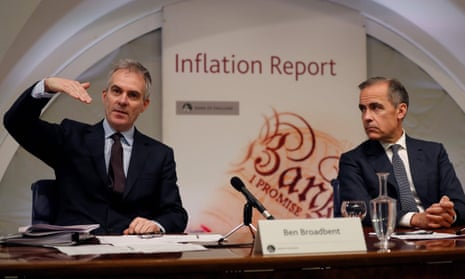The economy, according to a newspaper headline, is “at a menopausal moment”. The deputy governor of the Bank of England, former Goldman Sachs banker Ben Broadbent, has been quoted as comparing the current slump in productivity to a similar, and much debated, spell of stagnation in the late years of Queen Victoria’s reign. This period was identified in 1952 by the economist Henry Phelps Brown as “the climacteric of the 1890s”. Broadbent, asked to explain what was meant by a “climacteric”, said that it was a biological word meaning “menopausal, but can apply to both genders … it means you’re past your peak, you’re no longer potent”.
And with that Mr Broadbent, to use another bodily metaphor, fell flat on his face. Anyone equipped with basic common sense, leave alone in possession of a prominent position in public life, ought to be ashamed of the claim that the menopause means that a woman is over the hill and lacks “potency”. Such ideas are, plain and simple, misogynist myths.
Mr Broadbent’s botched attempt to explain an idea from economic history also sends out worrying signals about the sort of language and discourse felt to be acceptable at the Bank of England – not, it might be added, an institution especially celebrated for its nurturing and promotion of women. He apologised quickly. But his ill-chosen words act as a grim reminder of the pervasiveness of language that objectifies and belittles women, particularly older women. The association of the bodies of postmenopausal women with a lack of value is depressingly common, but there is something especially chilling about extending this tired old equivalence to economic theory.
Mr Broadbent’s explanation did not even represent an accurate definition of “the climacteric”. It is true that the word can, in some medical contexts, be used as a synonym for the menopause, or, indeed, to indicate a man’s diminishing physical strength after a certain age. But it has much more generally been applied to any critical stage in human life; a point when a person is especially liable to changes in health or fortune. (It derives, ultimately, from the ancient Greek word klimax, meaning ladder.) In the early modern period, these crucial moments were often regarded as coming along every seven years. In the dedicatory section at the start of his translation of Virgil, for example, John Dryden wrote, “I began this work in my Grand Clymacterique” – that is, at the age of 63, felt to be an especially significant year (and by no means denoting a collapse of productivity). In Phelps Brown’s original article, indeed, the language is scholarly and neutral; there is no suggestion of the 1890s economy having been a “menopausal moment”. Instead, he soberly referred to a “check on the economic progress of the country”.
Mr Broadbent, after this unedifying moment has passed, should concentrate on diagnosing the state of the economy. He can leave women’s bodies out of it.
